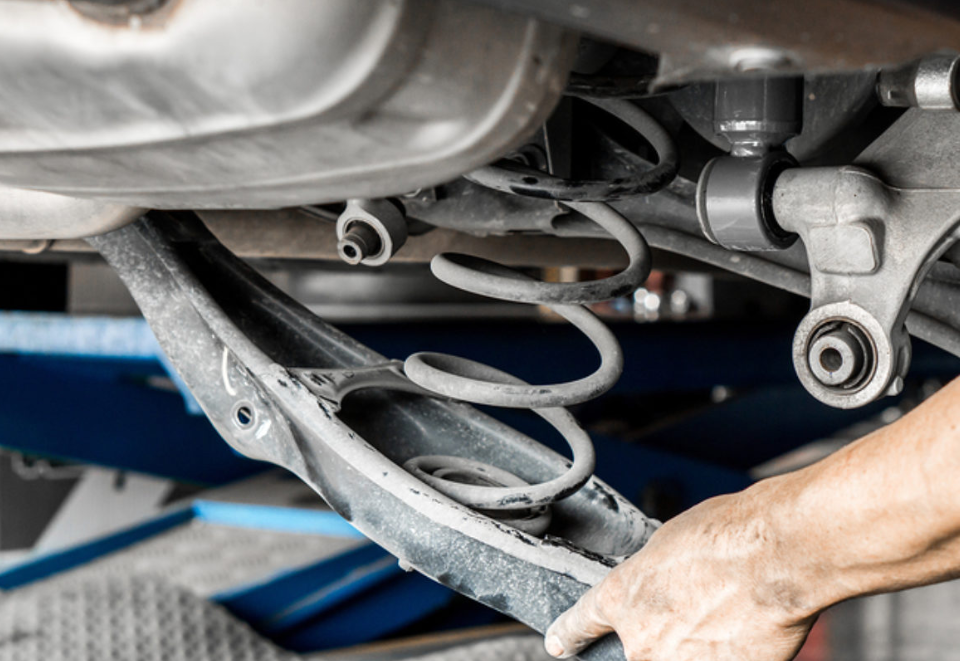From the hum of an engine to the rhythm of tires on asphalt, cars generate a symphony of sounds. While some noises are expected, others like a scraping noise when driving slow can be a cause for concern. This article aims to shed light on this particular car problem. It’s vital to diagnose and address unusual noises promptly as they often signal underlying issues that may affect vehicle performance, safety, and longevity. By the end, you’ll have a better understanding of what may cause a scraping noise when driving slow, how to diagnose it, and the potential fixes.

Understanding Vehicle Noises
Scraping noise, as the term suggests, refers to the harsh, abrasive sound that resembles two hard materials rubbing together. It often occurs when metal, plastic, or other car components scrape against each other or the road. Understanding the difference between scraping, squeaking, and grinding noises can help pinpoint potential problems. Squeaking is often high-pitched and repetitive, while grinding is a heavy, growling sound. Scraping, however, is typically consistent and more subdued.
Several parts of a vehicle can generate scraping noises. It could originate from the brake system, undercarriage, wheels, tires, or suspension. We’ll delve deeper into these in the following sections.
Possible Causes of Scraping Noise When Driving Slow
Brake System Issues
A significant cause of the scraping noise when driving slow can stem from brake system issues. Two primary suspects in the brake system are worn-out brake pads and rusted brake rotors.
Worn Out Brake Pads: Brake pads are designed to bear the brunt of friction during braking, which gradually wears them out. As these pads thin down over time, the reduced buffer between the metal components can lead to a scraping noise when braking. This noise is often more noticeable at slow speeds or during gradual stops.
Rusted Brake Rotors: In wet or humid environments, brake rotors can accumulate rust. If the vehicle isn’t used often, the rust may not be scraped off through normal brake use, leading to a persistent scraping noise when driving slow.
Undercarriage Damages
Another source of scraping noise can be damage to the vehicle’s undercarriage. Here are a couple of typical problems:
Loose or Damaged Shield: The undercarriage shield, designed to protect the underside of your car, may become loose or damaged. If this happens, it can scrape against the road, causing a distinct noise especially noticeable at lower speeds.
Exhaust System Damages: Parts of the exhaust system running under your car can sometimes hang lower due to damage or loosening over time. This can cause them to scrape the road, generating a scraping noise.
Wheel and Tire Issues
Wheel and tire-related problems can also contribute to scraping noises. Two of the most common issues are:
Misaligned Wheels: Misaligned wheels can result in uneven tire wear. The resultant irregular tire surface can rub against parts of the car’s body or suspension components, causing a scraping noise.
Damaged or Worn-out Tires: Tires with significant wear and tear or damage can also cause a scraping noise. This is particularly true if the tire’s steel reinforcement becomes exposed, leading to a scraping noise when the tire makes contact with the road.
Suspension System Problems
Suspension system problems can also generate scraping noises. Let’s delve into two typical issues:
Worn Out Shock Absorbers: Shock absorbers help ensure a smooth ride by minimizing the impact of road irregularities. Over time, these components wear out, and their reduced effectiveness can lead to additional strain on the suspension system, resulting in a scraping noise.
Damaged Suspension Bushings: Suspension bushings are designed to help absorb vibration between the suspension and the frame of the car. When these bushings wear out or become damaged, metal-on-metal contact can occur, causing a scraping noise when driving slow.

Diagnosing Scraping Noise
Ignoring a scraping noise when driving slow can lead to severe consequences, including expensive repairs and compromised safety. Pinpointing the source can be tricky, but some basic steps include inspecting your car visually, listening for changes in the noise when performing certain actions (like braking), and feeling for changes in the car’s performance.
Despite your best efforts, some issues may require professional diagnosis. If the noise persists or worsens, or if you’re unsure of its source, it’s best to visit a mechanic. They have the expertise and tools to identify and fix the issue accurately.
Troubleshooting and Fixing Scraping Noise Issues
Many scraping noise issues can be fixed at home with the right tools and knowledge. Brake system repairs might involve replacing brake pads or removing rust from rotors. Fixing undercarriage damages could be as simple as tightening a loose shield, while wheel and tire repairs might entail aligning wheels or replacing tires.
For suspension system issues or complex problems, professional repairs may be necessary. Remember, preventive maintenance, such as regular check-ups and prompt attention to any abnormalities, is the best way to avoid a scraping noise when driving slow.
Case Studies
Case Study 1: Brake System Issue
A car owner once reported a scraping noise when driving slow. Upon inspecting the vehicle, it was found that the brake pads were significantly worn out, leading to metal-to-metal contact within the brake system. The scraping noise was the direct result of this. Replacing the brake pads promptly resolved the issue.
Case Study 2: Undercarriage Damage
In another instance, a vehicle was generating a scraping noise that got louder at slower speeds. The investigation revealed that the undercarriage shield was loose and scraping against the road. Once the shield was secured back into place, the scraping noise ceased.
Case Study 3: Wheel and Tire Issue
A car owner reported a persistent scraping noise when driving at slow speeds. The issue was traced to misaligned wheels, leading to uneven tire wear. This resulted in the tires scraping against parts of the car’s body. A wheel realignment and tire replacement solved the problem.
Conclusion
The sound of scraping noise when driving slow may be annoying, but more importantly, it’s a potential sign of underlying issues with your vehicle. Addressing it promptly can prevent more severe problems down the line and ensure your safety on the road. Regular maintenance is key to keeping your vehicle in top shape, preventing not only scraping noises but a range of other potential issues as well. So, listen to your car, it speaks volumes about its health.
FAQs:
Why is my car making a scraping noise when I drive slow?
This could be due to several reasons such as issues with the brake system, undercarriage damage, wheel and tire problems, or issues with the suspension system.
Can I drive my car with a scraping noise?
While the vehicle may still be drivable, it is advisable to address the scraping noise promptly. It might signal a significant problem that could affect safety and the performance of your vehicle.
How do I fix a scraping noise when driving slow?
The solution depends on the cause of the noise. It could range from replacing brake pads or securing a loose shield to aligning wheels or replacing damaged suspension components. It’s often best to consult with a professional mechanic to identify and fix the problem.
How can I prevent scraping noises in the future?
Regular vehicle maintenance is the best way to prevent scraping noises. Regular check-ups can help identify potential problems early before they become significant issues.
When should I take my car to a mechanic for a scraping noise?
If the scraping noise persists despite your initial investigations and attempts at fixing, or if the noise gets louder, it’s time to take your car to a mechanic.